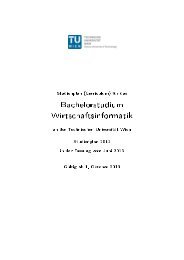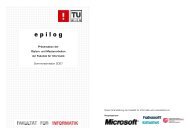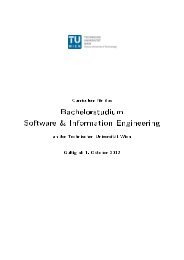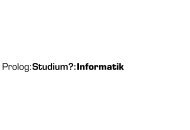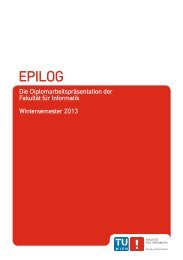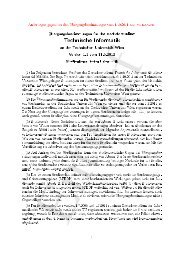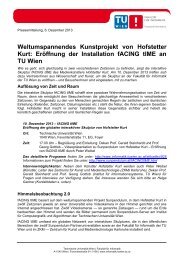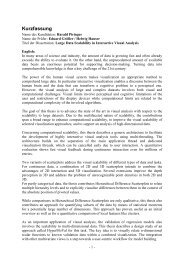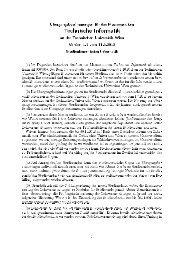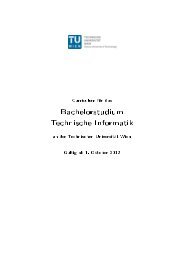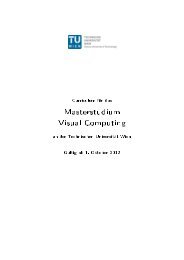Masterstudium Business Informatics - Fakultät für Informatik, TU Wien
Masterstudium Business Informatics - Fakultät für Informatik, TU Wien
Masterstudium Business Informatics - Fakultät für Informatik, TU Wien
Create successful ePaper yourself
Turn your PDF publications into a flip-book with our unique Google optimized e-Paper software.
SIT/SE1 - Requirements Engineering and Empirical Evaluation<br />
ECTS-Credits: 6.0<br />
Summary: The module covers advanced requirements engineering approaches, which<br />
provide the foundation for traceability of requirements along the software life cycle,<br />
and empirical evaluation approaches, which provide a framework for the evaluation of<br />
software engineering artifacts and processes. As a background students require a solid<br />
basic knowledge in formal modeling and software engineering. The module consists of<br />
a lecture and workshop on requirements engineering as well as a lecture and workshop<br />
on empirical evaluation approaches. After completing this module students will have a<br />
stronger knowledge to specify and validate software engineering artifacts and processes<br />
in scientic and/or industrial contexts.<br />
Learning Outcomes:<br />
Knowledge: Requirements engineering for complex software systems<br />
• Role-specic elicitation, specication, and documentation of requirements<br />
• Requirements negotiation<br />
• Requirements management and tracebility<br />
• Requirements methods and tools<br />
• Links of requirements engineering to software engineering research topics, e.g.,<br />
agile methods, product lines, and quality assurance<br />
Methods of empirical software technology<br />
Skills:<br />
• Understanding for empirical work in software engineering research<br />
• Knowledge on empirical strategies and when to use them: controlled experiments,<br />
case studies, surveys<br />
• Ability to systematically create and test hypotheses on systems and processes in<br />
software engineering<br />
• Application of requirements engineering methods and tools<br />
• Applying formal techniques for abstraction and modeling (requirements specication<br />
and tracing, quality assurance of requirements models)<br />
• Ability to create and test simple and advanced hypotheses on systems and processes<br />
in software engineering<br />
• Planning of an empirical evaluation study<br />
81



